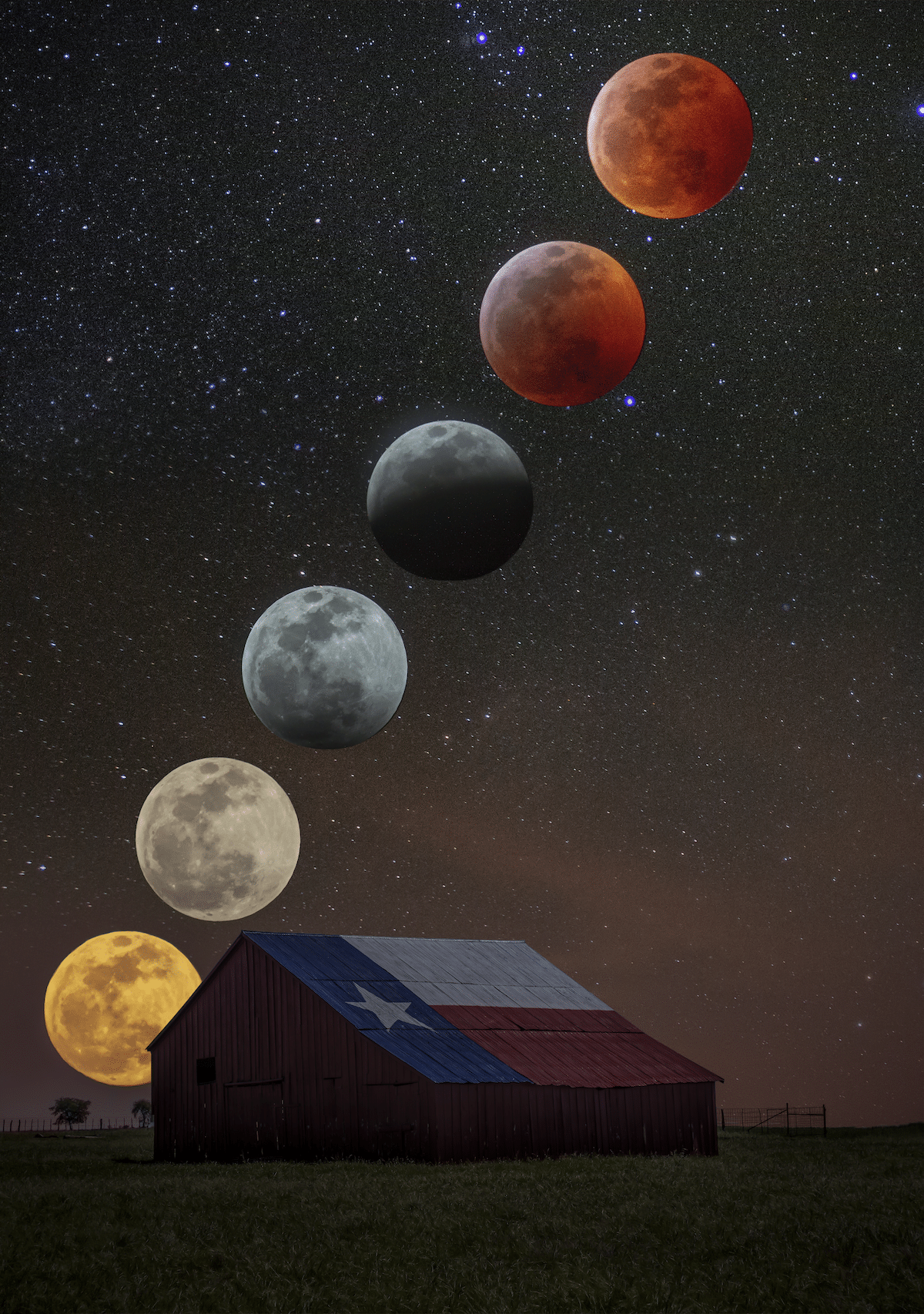
This post may contain affiliate links. If you make a purchase, My Modern Met may earn an affiliate commission. Please read our disclosure for more info.
The nights of January 20 and January 21 marked a spectacular celestial event. It was during this time that a rare Super Blood Wolf Moon was visible in the United States. Photographer Jason Weingart knew that this was a sight not to be missed. The moon would be 14% larger and 30% brighter than it normally is, and it’d be the last total lunar eclipse until May 2021. To celebrate the occasion, he photographed and compiled six stages of the moon into one breathtaking photograph.
Weingart’s moon photography shows a progression of the celestial body as it rose from the horizon to its total eclipse. He started snapping photos at sunset and simultaneously shot and edited his composite image; it was completed shortly before midnight on January 20. The resulting photograph is a stunning transition of our moon, and it highlights just how much it changed in a short period of time. You can’t help but be in awe of our galaxy.
We were honored to speak with Weingart about his image, which went viral shortly after he shared it on Instagram. In addition to nighttime photography, Weingart is also a storm chaser who has captured terrifying tornados in the Midwest. Scroll down to learn more about the Super Blood Wolf Moon composite picture and Weingart’s career as a weather photographer.
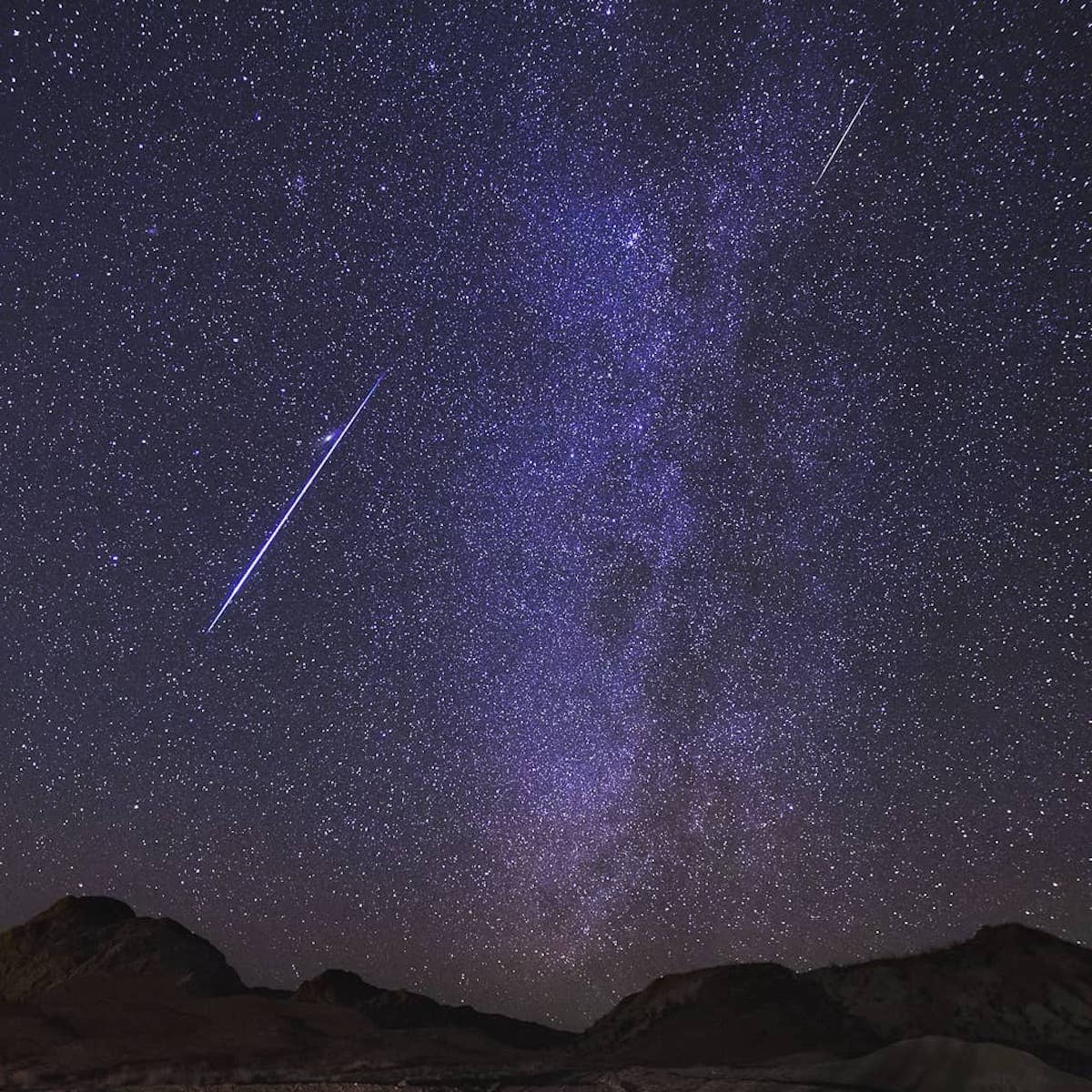
Geminid Meteor Shower
What inspired you to capture the Super Blood Wolf Moon?
I hadn’t taken my gear out in over a month since the Geminid Meteor Shower. I really just wanted to make something fun and hopefully inspire people to go outside and look up!
What was the process to capture this photo? How long did it take, from shooting the six stages of the moon to completing the composite photo?
It took me about six hours total. With how much hype surrounded the event, I knew there would be a ton of photographers shooting it. I wanted to get something out [that was] eye-catching and be one of the first to do it. I started shooting at sunset.
I wish I had rented a better lens, like the 400mm I used for the 2017 solar eclipse, but I just used a cheap 250mm. I shot the barn at 105mm to give a compressed look and eliminate some trees on either side. After it got dark and I had my shots, I started working on the composite image before the eclipse started. I grabbed a shot of the moon every 30 minutes or so, then went back to working on the composite. Once we hit the peak at 11:12 pm, I wrapped up shooting and put the finishing touches on the image.
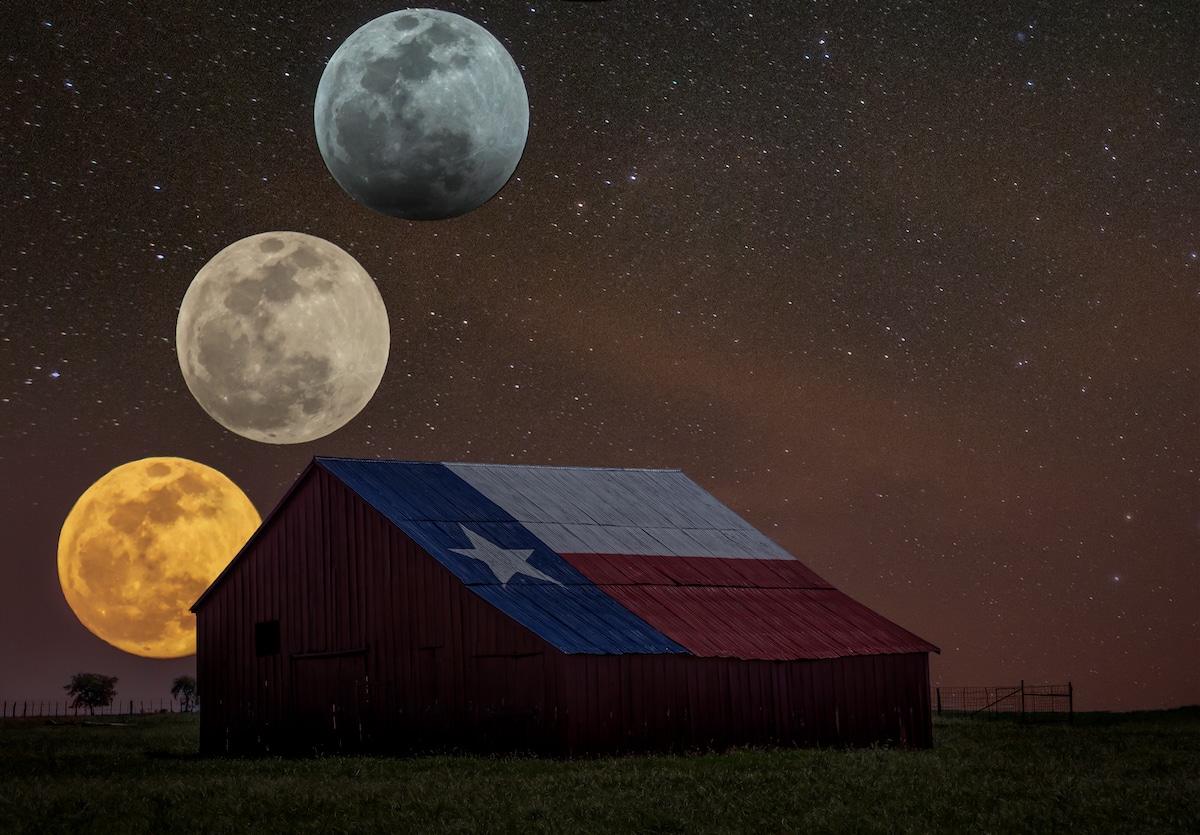
Detail of Super Blood Wolf Moon photograph
Did you have an idea of what you wanted the composite to look like prior to shooting?
Yes, I looked at a lot of other composites of lunar eclipses for inspiration.
What artistic liberties did you take in creating the compelling image?
I took far more artistic liberties than I ever have on any image I released. I enlarged the moon by 75% to give a really dramatic effect. I also used a background with a lot of stars because it really gets dark during a lunar eclipse. I also made the entire event much lower to the horizon than it was. The first moon is in the right spot, but after that, it was much higher in the sky.
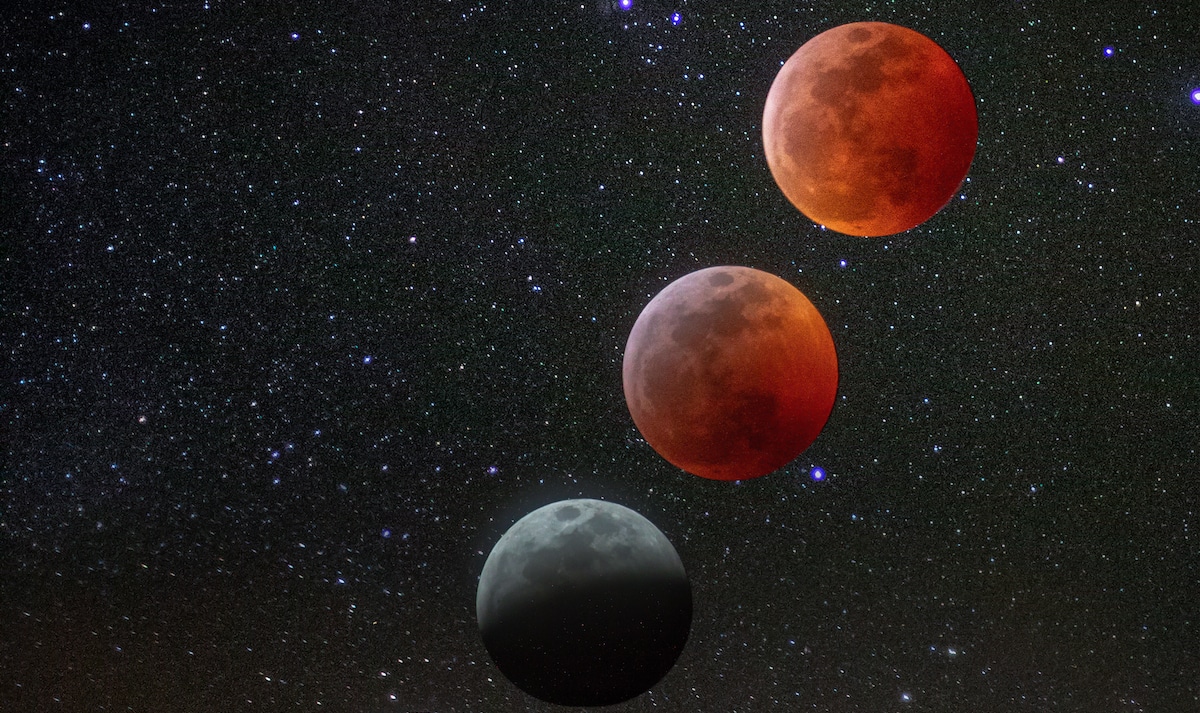
Detail of Super Blood Wolf Moon photograph
What kind of gear do you use when snapping photos at night?
I mostly shoot Milky Way type images, so I typically use a Canon 6D with a 16-35mm lens and an intervalometer. I shoot a lot of time-lapse, so that’s normally the final product I have in mind.
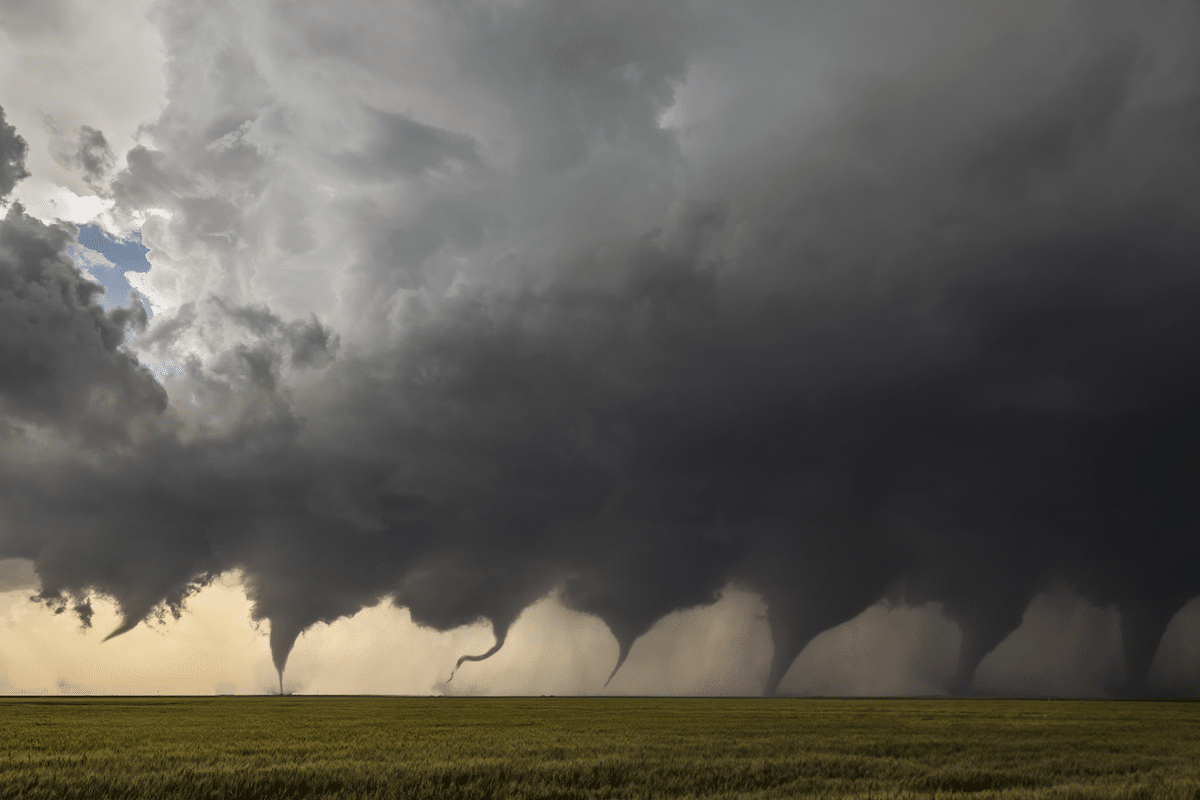
Evolution of one tornado in Ford County, Kansas on May 24, 2016
In addition to photographing the night sky, you’re also a storm chaser. How did you get into this line of photography?
I actually got into the night sky photography as something to do when there weren’t any storms. I instantly fell in love with shooting at night though. I love the challenges and results night photography presents. I attended the Southeast Center for Photographic Studies. I had never even picked up a DSLR before enrolling in the program.
I knew I didn’t care for being in a studio, so I started out shooting a lot of sports photojournalism. I had an interest in weather from a very young age, so once I felt comfortable using a camera, I decided to try to photograph lightning. It took a few tries, but once I got it, I never looked back.
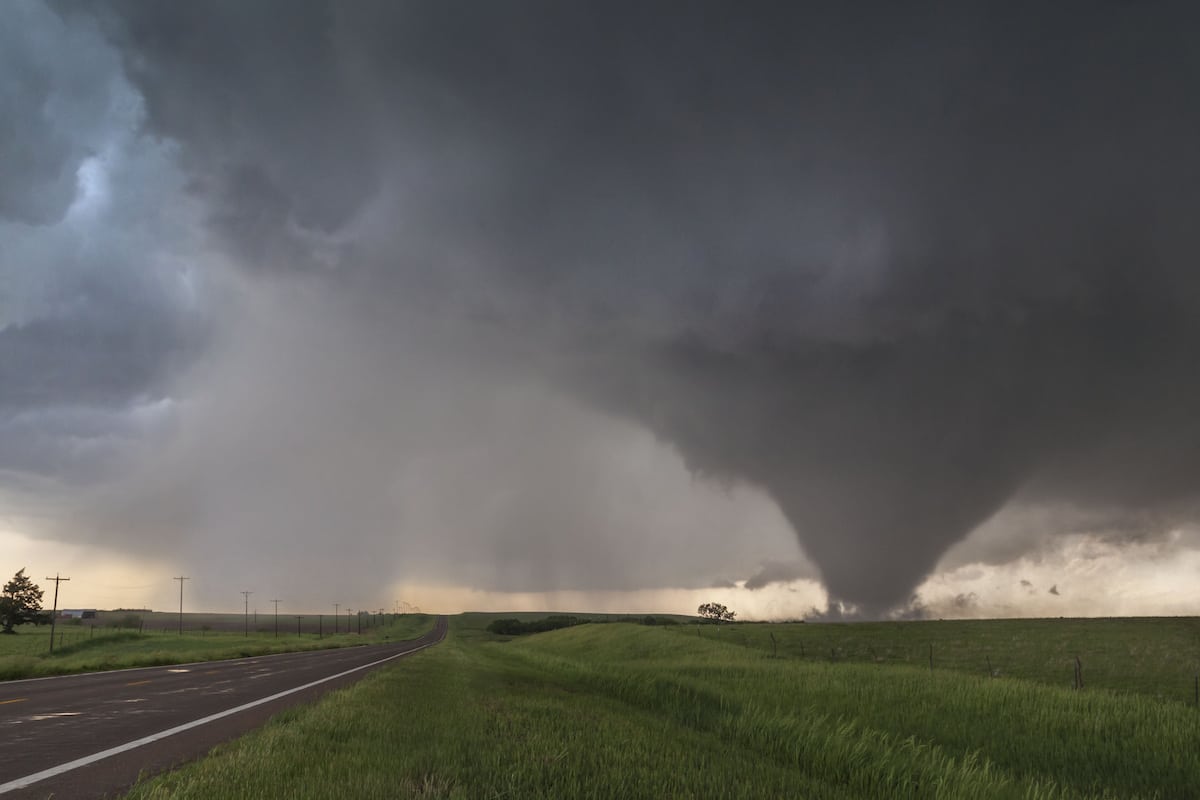
Tornado in Bennington, Kansas on May 28, 2013
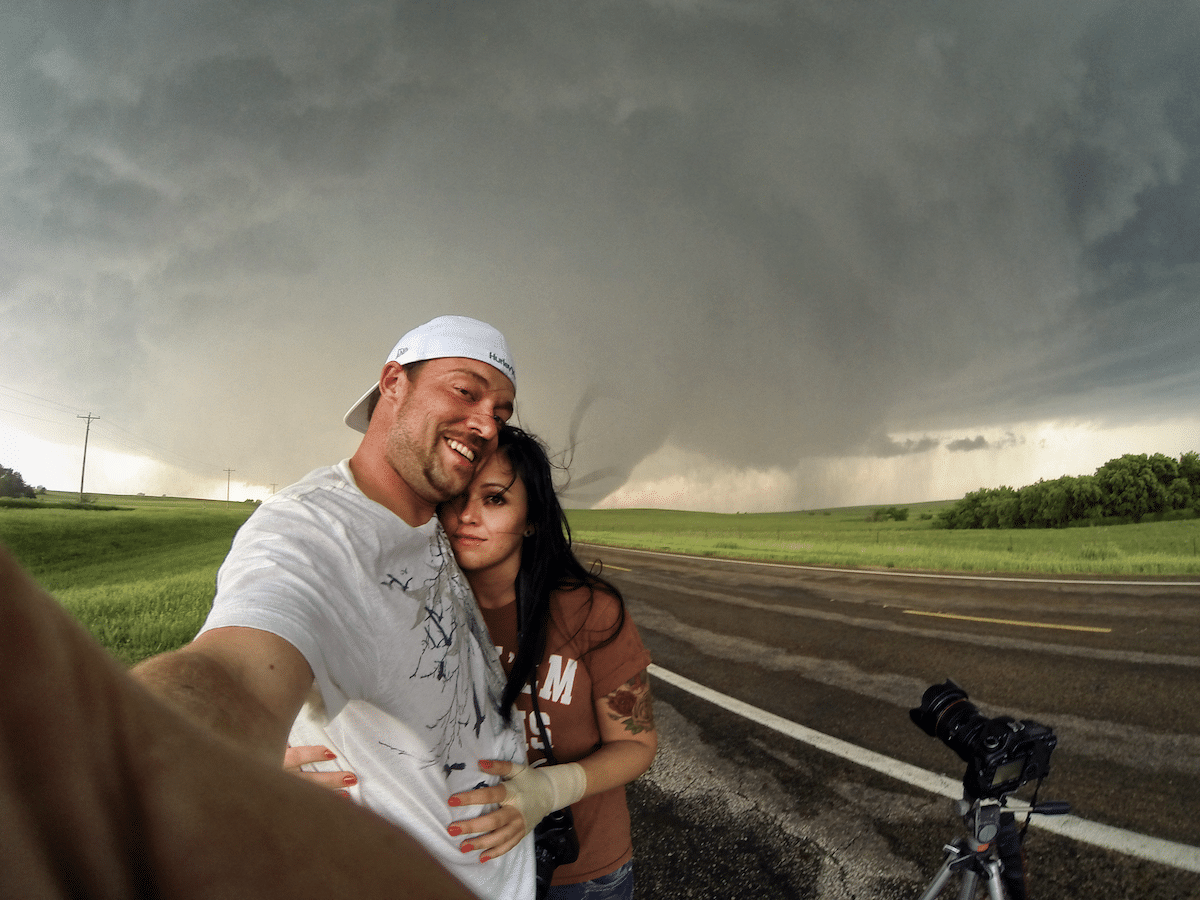
Jason and his wife Savannah
What’s your most memorable storm chasing experience, and is there a photo that captures it best?
There have been so many memorable experiences over these past few years. I would have to say my favorite would be the first tornado that I witnessed in Bennington, Kansas on May 28, 2013. It was also the first time I met Savannah, who is now my wife. We watched the storm form from a few small cumulus clouds to grow into a massive supercell that produced a long-lived EF3 wedge tornado. We were just a few hundred feet away from where it first touched down.
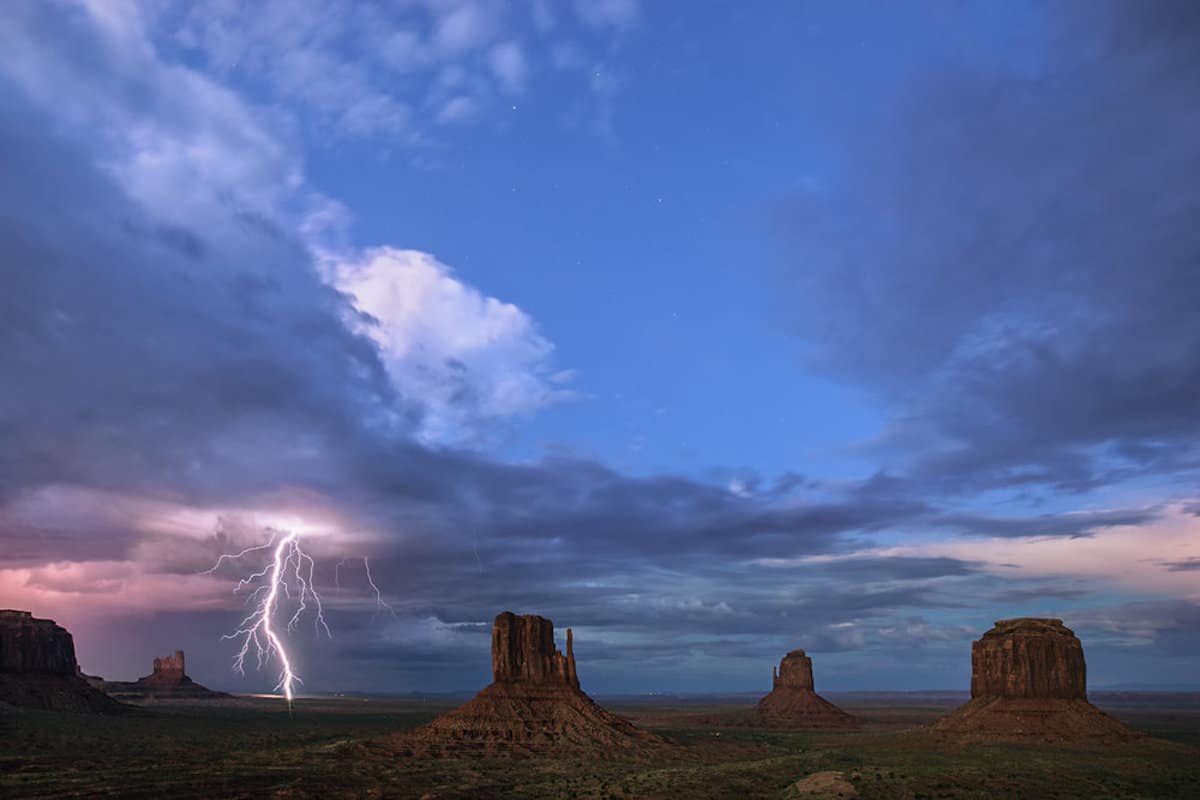
Monument Valley on the Utah/Arizona border is the location of one workshop
You teach many workshops over the course of a year. What can participants expect to learn when they take one?
I’m so blessed with what I get to do for a living and thankful for all of our guests who spend their hard earned money to join one of our workshops. No matter what workshop they attend, they can expect to learn more than they ever thought possible about the subject of the workshop.
We have guests with a wide variety of photographic experience, so each one learns something different. Some are just getting to know their cameras, so they can expect to feel comfortable with using manual settings and building a better foundation for their photography. Others have their cameras figured out, so we might focus on some more advanced editing processes or helping them get a better understanding of how to go do all of this stuff on their own.
